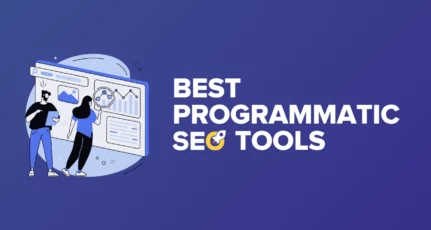As an SEO learner, one of the best ways to learn SEO is by looking at search engine optimization techniques on Google’s favored site.

This will help a lot to understand what your blog is missing and how you can make your blog internal SEO better.
Here we will look into Wikipedia SEO strategies, which will help you to learn more about On page SEO and you can take away 2-3 things from here and implement it on your website.
Wikipedia is one of the most popular websites and you will find SEO ranking for most of the keywords at number 1 in Google search. Wikipedia’s popularity owes itself to the website is unique, with article content that any user can edit.
With a huge volume of visitors to the site, Wikipedia would seem like an ideal tool in SEO strategy, but certain elements involving its culture and policies can prove very difficult for SEO implementers to use.
That is a really good example of sites with fantastic SEO. We will discuss it now.
There is no doubt, Wikipedia SEO is out of the box and they take care of each part of the site SEO structure carefully. For us (Bloggers and SEO’s) Wikipedia is a good case study to learn and understand what effective SEO is.
There are a lot of ways in which Wikipedia retains its online quality. But, it doesn’t even use so much ‘secret’ SEO tips that you cannot figure out.
Here, I have listed the SEO tricks used by Wikipedia that help it to rank higher.
Wikipedia employs stringent policies with regard to link spam, to the point that even relevant external links to its many articles at times get deleted. The few remaining links are in the form of tags to hide them from search engine spiders, which defeats the purpose of using Wikipedia as part of any SEO strategy.
Wikipedia SEO Strategies: What Can You Learn From It?

1. Smartest Interlinking example on the net
If you are fond of Wikipedia, then you might know that Wikipedia is the largest linker of its content. It links to around 500-600 other Wikipedia articles itself from its one page. So that none of its articles get dumped ever. You know that Wikipedia links to its category pages and its tags.
It also links to its Wikimedia files about images and other stuff. That is why Wikipedia never gets ranked third or fourth in any of its articles.
It lives on the idea that if you want others to promote your content, you should promote it first. This also has the direct impact on low bounce rate of Wiki and better user experience.
Don’t you think so?
If you are using WordPress, you can use WordPress Smart link for automatic internal linking. Link as much as you could, but make sure it should be relevant and meaningful.
WordPress users can use Linkwhisper plugin to achieve similar kind of internal linking smartness.
Also keep user experience in mind, while doing Internal-linking as lots of irrelevant linking may give bad user experience.
2. Unique content across different pages
You will see that all the Sidebars, footer and the header of the page. That is quite a good deed. After observing for a while, you can also conclude that 98% of its content changes over the page.
On the terms of copyright text, Wikipedia contains just a line, and the plain HTML written a link to its Copyrights documents. Isn’t that just another vote towards the cleanliness of a site.
It says itself on the Webmaster Guidelines that the same words or content should be minimum on different pages, and it will be better it the content changes a lot across the different pages of the site.
3. Canonical for different language pages
Wikipedia has many different pages, and it also does not uses English as the preferred language. So, how does it protect itself from duplicate pages?
By using Canonical settings and making language markup for these different pages.
One more thing that you will notice is that Wikipedia has different subdomains for different languages which create different virtual sites containing the whole page with a specific different language.
This also tells us how we can use multiple subdomains for multiple languages and save ourselves from those cruel updates.
- Also Read: Wikipedia SEO Strategies
4. Not just links, but relevant links
Wikipedia doesn’t allow any links in the References section. But, only relevant links that comprise of the content on its page. Wikipedia has links to trustable sources that contain the different prospects of the same content. Also, those pages have content that is useful for users. Wikipedia never links to sites that don’t have any content related to its pages.
5. Anti- SPAM
Wikipedia is an online example of how a site can stay big yet not spammed. Also, Wikipedia offers its users to edit any content on its page. But, it never allows the SPAM content to stay long on its pages. It keeps the record of each of the edits that are made and lets them stay on the page only after reviewing completely.
For Blogger, you are responsible for any links on your webpage. That could be in the form of Guest posting or via commenting.
Since irrelevant links are considered as bad SEO example, so before adding any link to your page (Comment or guest post or any other way), make sure it’s useful and add value.
6. Informational Content, the top motive
The primary motive of Wikipedia is just to stay informed and provide content that is true and useful. All the other sites and blogs on the net that think the same way will always succeed the same way.
Don’t you think that happy readers are much useful than unhappy advertisers? Yes, they are, because when people are happy, they share the same things that they discovered with their friends.
- The art of Pillar articles: How to create it?
My suggestion here: Not only work on developing new content but keep updating the old content to make it more useful and relevant.
7. Wikipedia and the Nofollow Value
Because of Wikipedia’s peculiar characteristics making it a prime target for individuals wishing to tap it for a variety of purposes, 2007 saw the implementation of the nofollow value for all backlinks to its articles. This concept was a Google invention in 2005. By adding a certain meta tag to an HTML link, web spider programs will not be able to crawl the link into its search engine index.
If you are new to nofollow concept, refer to the following two posts:
This concept is virtually foolproof and the web-crawlers of all major search engines follow it. And since all external links in Wikipedia, excluding those leading to other Wikimedia websites, are coded with the nofollow value, these backlinks are not able to promote the websites they point to. Still, this measure did little to curb the proliferation of links in Wikipedia’s articles.
People add redundant items to Wikipedia like links to subpages of a parent website in addition to the main page’s link. Most of the time multiple relevant links are added to a single article, such as links to social network sites, fan sites, forums, and others in an attempt to achieve comprehensiveness.
In most other websites these links are usually located on the links page but this feature is not available with Wikipedia.
8. Wikipedia’s Bureaucracy and Cultural Backgrounds
In a nutshell, the policy of the website governing external links can be described as limiting any such links added to a particular article to the most reader-useful, directly relevant ones only to keep the number of added links per article to a minimum.
Some of the editors in Wikipedia rigidly review contributed articles to root out spam and ensure the quality of submitted content. A few implemented these policies to an extent where it is almost impossible to add an external link to an article without it being removed, especially if little effort is taken to justify its inclusion.
Sometimes a contributor will add a hyperlinked text in the article content as a reference citation. These citations are also frequently removed not because they are judged to be inappropriate, but because they fail Wikipedia’s similarly-confusing standards for verifiability.
This usually holds true if the cited reference is a self-published piece on the subject. Examples of these are blogs and press releases. A notable incident in 2007 involved Rand Fishkin observing that the Wikipedia article on SEO had its citations removed simply because they originated from self-published sources, even if those citations are attributable to known SEO experts. Such incidents can be frustrating for article contributors.
9. The Practice of Blacklisting Pages in Wikipedia
As an extreme measure, a notorious website may be banned by Wikipedia administrators if it poses a significant threat as a link spammer. One such website, Suite101.com, was blacklisted by Wikipedia in 2006 when article writers for the former overstuffed their material with backlinks to attract more viewers. Back then the website compensated its writers based on the number of page views received.
The nofollow policy resulted from this incident, and since then Suite101.com replaced its compensation scheme to follow a pay per click model. Despite the change, Wikipedia’s verdict on the issue stands.
None of Suite101’s article links may be placed within Wikipedia, not even as reference citations. Suite101 president Peter Berger appealed to Wikipedia to no avail, and afterward, the only leeway for removal of a site from the blacklist is through popular demand.
Promoting a website by attaching its links in Wikipedia is futile, as the incidents mentioned above demonstrate. Harsh policies and customs ensure that no link having the slightest hint of a promotional agenda will long survive to scour by Wikipedia fanatics intent on keeping it as a pure resource of human knowledge.
Well, I’m not sure how many of you work day and night on On-page SEO. But you should clearly try to imply some of Wikipedia SEO strategies on your blog to make it more SEO friendly.






There might be many SEO strategies of Wikipedia. Of them, the 2 tips are worth considering. One is internal linking and the other rich content. These two things can be implemented from our side.
Nice Post It;s Really Helpfull. if you got a backlink on Wekipedia they increase visitor traffic and it;s good for seo i know it;s giving no follow backlink but know follow is help for my site
Nofollow links on Wilipedia wont help you much, but they are still links. Google and others travel the web through these links, if they see you in more relevant and respectable places, they will consider you influencial to that niche/topic.
Wikipedia is always occupping the top positions (including in serious researches, like medicine or law), regardless of the value of the article versus schoolar articles or, in many cases, press or magazine articles. Many times we had to include a “-wikipedia.org” in the search box.
we cannot always experts to write articles, they are just too busy. What i have seen is noobs producing great content as they go on. You just need to produce something unique after doing considerable amount of research. Also SERPS depends a lot on niche.
Nofollow or not, getting a link from wikipedia adds a lot of authority. I’ve seen some of my own sites move to number 1 position in SERPS just due to adding one single links from Wikipedia.
I just tried adding some external links but they were removed in minutes.
The things is that were some already other links there no more relevant than mine which is why I thought it would be ok. Maybe the policy is not applied consistently.
I had attempted on writing an article about a website. the only think lacking was 2 strong references. and i was having only one reference. So i didn’t publish the article. I tried chatting with the experts in the chat room but they told me to find minimum of 2 strong references. So sad 🙁 if it was accepted then i would have got atleast one backlink from wiki ;p lol
Honestly, let me ask you people something: Wikipedia is providing a valuable service. Why do you want to spam it by placing links to lame marketing sites? Why do you want to turn it into a squidoo or ehow? The quality of these sites have dropped significantly because of spammers. And you’re doing just that by placing your links there.
Stop going the easy way and build it through the right way. Stop spamming the forums. Do effective social bookmarking and article marketing. You will naturally rank.
Even I have tried placing relevant links on Wikipedia but I couldnt understand how they got deleted.. Maybe the owner of the article might have done that. Any comments on this?
Nobody owns articles on Wikipedia. Your links got removed because they were not actually relevant.
No follow means nothing. Google did invent it. But nofollow links do count in Google’s eyes.
Google has it’s own way and it does ignore no follow. Although the PR juice of your site doesn’t go with the link juice. It’s just a myth.
I personally experimented this by throwing in three no follow links to my blog. The blog got indexed by google. No pings. No nothing. Why? Because no follow is followed by Google.
Stop spreading some myths when you haven’t tried something out yourself.
Your blog got indexed by Google- It doesn’t mean that it is because of the do follow or no-follow link. All the sites are getting indexed by Google but take its own time depending upon the crawl rate. To make it fast, some SEO works are required such as pinging , URL submission etc.
You placed a comment in this page with your site link. Crawler may access this site daily five times but it will not go to the no-follow link at that time for indexing. If it is a do-follow link, then the crawler will follow that link also to index contents instantly.
The importance of Pagerank is debatable , if you consider Pagerank, then at least for that calculation, Google doesn’t count no-follow links.
” Stop spreading some myths when you haven’t tried something out yourself”
No comments..
Totally useless article written only for traffic purpose. You are not teaching us anything. This is something all of us already know.
And despite of your huge post on wikipedia, look at this dumbo Anish KS trying to spam by suggesting we can get traffic from wiki by adding external links.
Google knows the wikipedia is a formula that seo strategist overly rely on- eespecially beginners. Its not a realistic way to accomplish anything relevant.
This is some very interesting history, Sujith. I have always thought that getting something published in Wikipedia would be a fun thing to do, just from a personal promotion standpoint.
I always had the thought that Wikipedia is the easiest way to promote any blog or business websites. But after reading this post, I am very clear its not an easy process to promote links via Wikipedia. Thanks for this useful article.
I always thought about using Wikipedia for promoting my blogs but never found time to do it. And after reading this post my interest in doing so has become negligible.
It’s best this way. As it is the moderators have a tough time going through all the BS people publish on Wikipedia. Better keep it free of spammy links!
Wikipedia’s importance as an authority site is undisputed. It’s at the point where it seems a bit ridiculous how often Wikipedia shows up in the first page of Google for just about every search imaginable. In many cases, these Wikipedia entries are extremely light on content. Oftentimes they are what are known as “stubs,” just the very beginnings of an article.